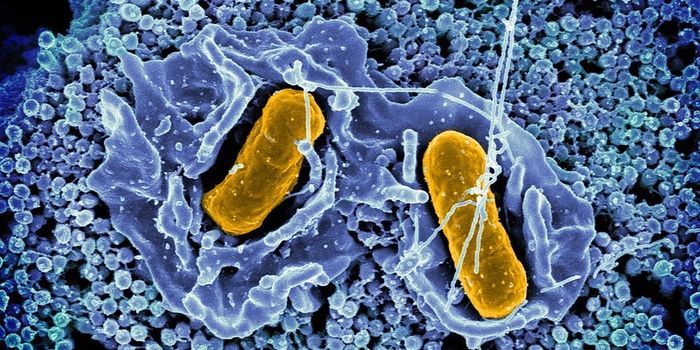Potential Antidote to Botulism is Found
A microbe called Clostridium botulinum and sometimes two other strains of Clostridium bacteria can make a toxic chemical called botulism. Those bacteria are not uncommon, but it is rare for a person to get sick with botulism. No antidote to the toxin has ever been approved by the FDA, however, so it is considered to have potential as a bioweapon. New research may change that; scientists have reported in Applied and Environmental Microbiology that they discovered a chemical that acts as a powerful inhibitor of botulism, and can reduce the paralysis it causes.
The scientists began by looking for an enzyme that enables the botulinum neurotoxin to damage neurons and cause paralysis. Next, they screened a library of over 300 natural compounds that were derived from Indian medicinal plants. They were searching for an enzyme that could act against the activity that disrupts neurons. They were able to find an inhibiting compound called nitrophenyl psoralen (NPP).
"Using high throughput screening, we identified one of the compounds, nitrophenyl psoralen, as having particularly strong activity against the neuron-damaging enzyme," said corresponding author Bal Ram Singh, Ph.D., Professor and Director, Botulinum Research Center, Institute of Advanced Sciences, Dartmouth, MA.
In the laboratory, the researchers assessed the activity of NPP in vitro and in their cell culture models. They tested it on the most potent of the seven serotypes of botulinum toxin and determined that NPP type A exhibited strong anti-botulinum toxin action, without having a detrimental effect on human cells.
"NPP also showed activity to reverse the mouse muscle paralysis induced by botulinum neurotoxin type A," added Dr. Singh.
While only around 200 cases of botulism are recorded every year, "these cost more to treat than the millions of salmonella outbreaks that occur, making botulism the most expensive form of food poisoning," noted Dr. Singh. Clostridium botulinum microbes, which produce the toxin, are prevalent in soil bacterium and are difficult to kill, even living through getting boiled.
Food poisoning in the most typical way that people become sickened by the toxin, but it can also infect wounds and get into the gastrointestinal tracts of children.
Dr. Singh added that NPP might be able to quickly gain FDA approval because psoralen-derived drugs have already gotten that approval.
Natural products are an interest for Dr. Singh, who has been researching herbs in the Ayurveda medicinal practice. These herbs may sometimes have fewer side effects and less toxicity than synthetic drugs.
Sources: AAAS/Eurekalert! via American Society for Microbiology, Applied and Environmental Microbiology








